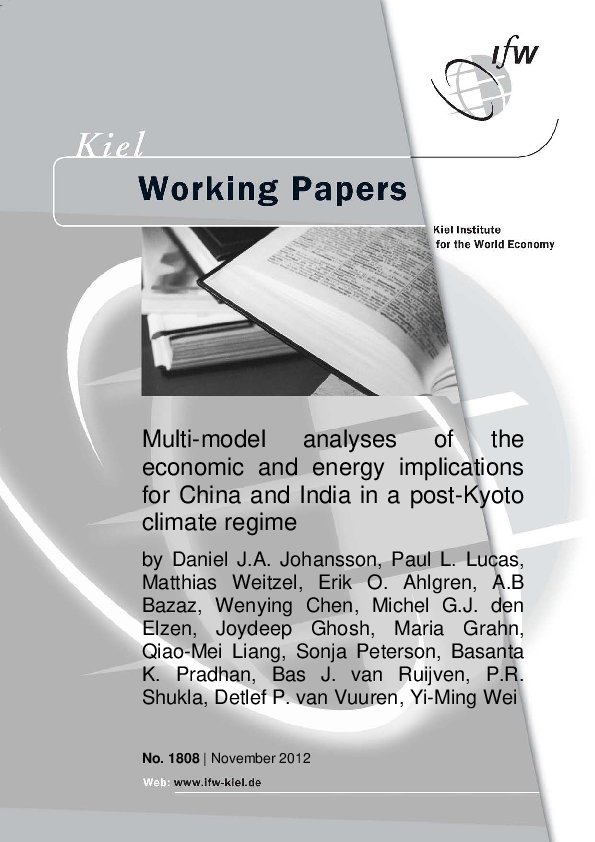Arbeitspapier
Multi-model analyses of the economic and energy implications for China and India in a post-Kyoto climate regime
Autoren
Erscheinungsdatum
Schlagworte
This paper presents a modeling comparison project on how the 2°C climate target could affect economic and energy systems development in China and India. The analysis uses a framework that harmonizes baseline developments and soft-links seven national and global models being either economy wide (CGE models) or energy system models. The analysis is based on a global greenhouse gas emission pathway that aims at a radiative forcing of 2.9 W/m2 in 2100 and with a policy regime based on convergence of per capita CO2 emissions with emissions trading. Economic and energy implications for China and India vary across models. Decreased energy intensity is the most important abatement approach in the CGE models, while decreased carbon intensity is most important in the energy system models. Reliance on Coal without Carbon Capture and Storage (CCS) is significantly reduced in most models, while CCS is a central abatement technology in energy system models, as is renewable and nuclear energy. Concerning economic impacts China bears in general a higher cost than India, as China benefits less from emissions trading. Costs are also affected by changes in fossil fuel prices, currency appreciation from capital inflow from carbon trading and timing of emission reductions.







